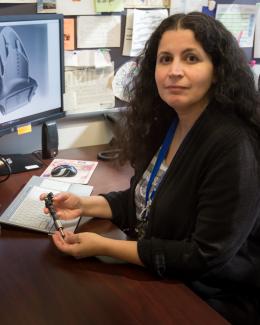Abstract
We present the first machine learning-based autonomous hyperspectral neutron computed tomography experiment performed at the Spallation Neutron Source. Hyperspectral neutron computed tomography allows the characterization of samples by enabling the reconstruction of crystallographic information and elemental/isotopic composition of objects relevant to materials science. High quality reconstructions using traditional algorithms such as the filtered back projection require a high signal-to-noise ratio across a wide wavelength range combined with a large number of projections. This results in scan times of several days to acquire hundreds of hyperspectral projections, during which end users have minimal feedback. To address these challenges, a golden ratio scanning protocol combined with model-based image reconstruction algorithms have been proposed. This novel approach enables high quality real-time reconstructions from streaming experimental data, thus providing feedback to users, while requiring fewer yet a fixed number of projections compared to the filtered back projection method. In this paper, we propose a novel machine learning criterion that can terminate a streaming neutron tomography scan once sufficient information is obtained based on the current set of measurements. Our decision criterion uses a quality score which combines a reference-free image quality metric computed using a pre-trained deep neural network with a metric that measures differences between consecutive reconstructions. The results show that our method can reduce the measurement time by approximately a factor of five compared to a baseline method based on filtered back projection for the samples we studied while automatically terminating the scans.





